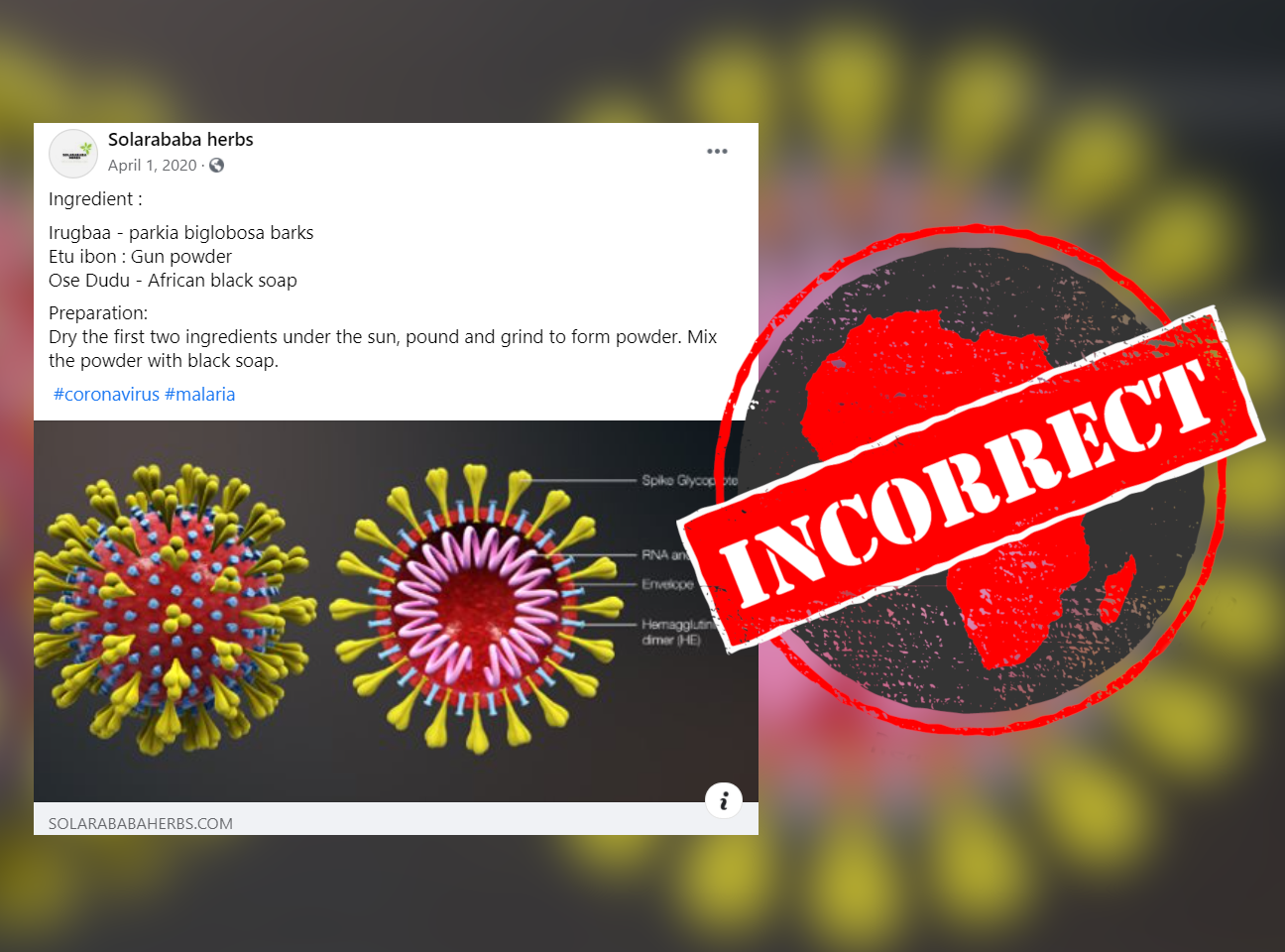A message posted on Facebook in Nigeria claims that a mixture of Parkia biglobosa bark, gunpowder and African black soap will protect you against malaria and the coronavirus – but isn’t a cure.
“Dry the first two ingredients under the sun, pound and grind to form powder,” it reads. “Mix the powder with black soap.”
Parkia biglobosa, also known as the African locust bean tree, is a multipurpose tree legume found in many African countries. The seeds and leaves are used in food and drink, and to feed livestock and poultry.
The new coronavirus, with the technical name Sars-CoV-2, causes Covid-19. This is a respiratory disease that infects the lungs and airways, causing fever, dry cough and fatigue. Prevention measures include physical distancing, wearing a mask, keeping rooms well ventilated, avoiding crowds, washing your hands and coughing into a bent elbow or tissue.
Malaria is a life-threatening but preventable and curable disease, with an estimated 229 million cases worldwide, the World Health Organization says. The WHO African region recorded 94% of the global malaria burden in 2019.
Can a mixture of Parkia biglobosa bark, gunpowder, and African black soap prevent coronavirus and malaria?

‘Ridiculous mix-up,’ says expert
Oyewale Tomori is a professor of virology and former president of the Nigeria Academy of Science. He told Africa Check there was no evidence that the remedy worked.
“It’s such a ridiculous mix-up. You’re taking a gamble until they have been taken into a proper laboratory and tested,” he said. “If you are taking anything or any drug that is not approved, you are taking it at your own risk.”
Tomori said people should instead follow Covid-19 prevention measures.
The WHO recommends the use of pyrethroid-only long-lasting insecticidal nets in malaria-endemic areas to reduce transmission of the disease. All suspected cases of malaria should be given a parasitological test to confirm the diagnosis. The organisation also recommends treatment options for combating the disease.
For more information on Covid-19 related claims Africa Check has debunked, read our live guide.
Republish our content for free
For publishers: what to do if your post is rated false
A fact-checker has rated your Facebook or Instagram post as “false”, “altered”, “partly false” or “missing context”. This could have serious consequences. What do you do?
Click on our guide for the steps you should follow.
Publishers guideAfrica Check teams up with Facebook
Africa Check is a partner in Meta's third-party fact-checking programme to help stop the spread of false information on social media.
The content we rate as “false” will be downgraded on Facebook and Instagram. This means fewer people will see it.
You can also help identify false information on Facebook. This guide explains how.





Add new comment